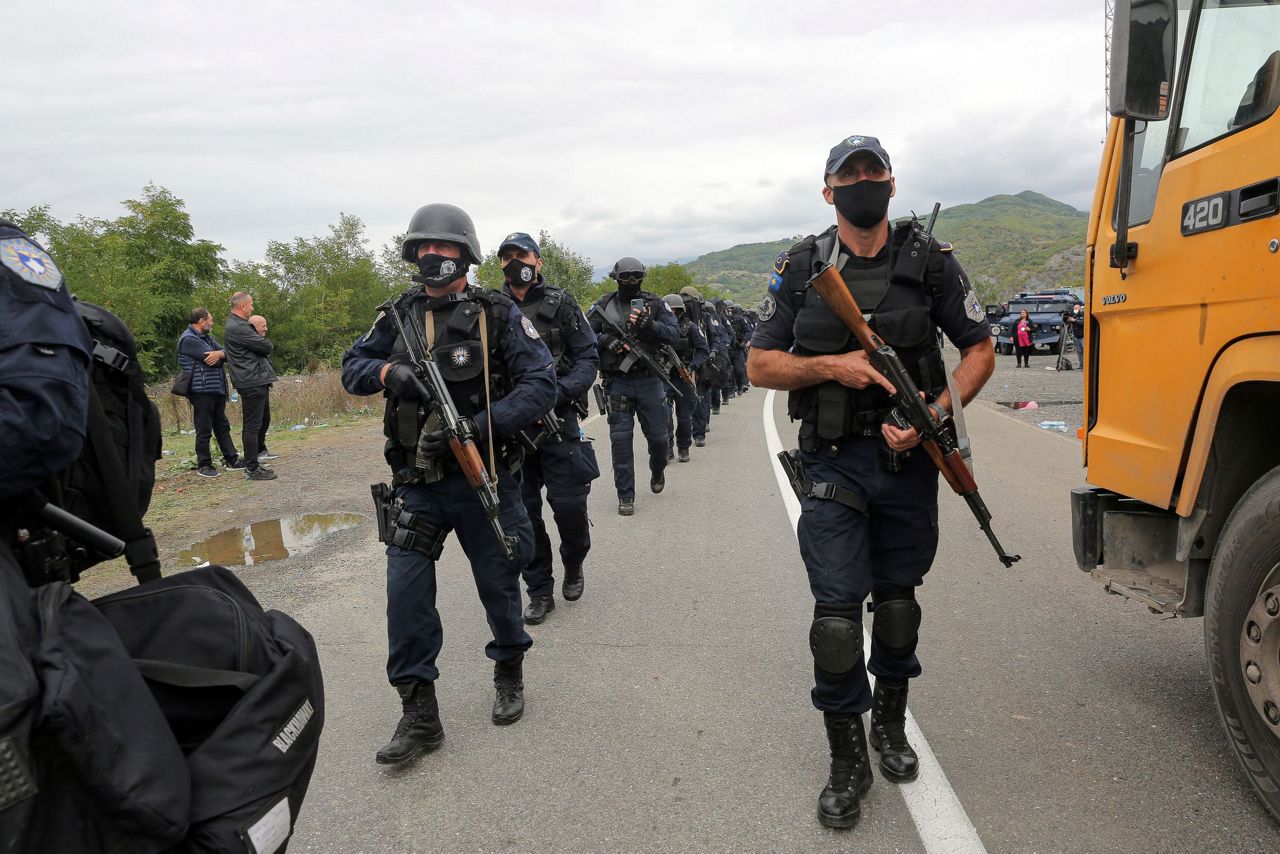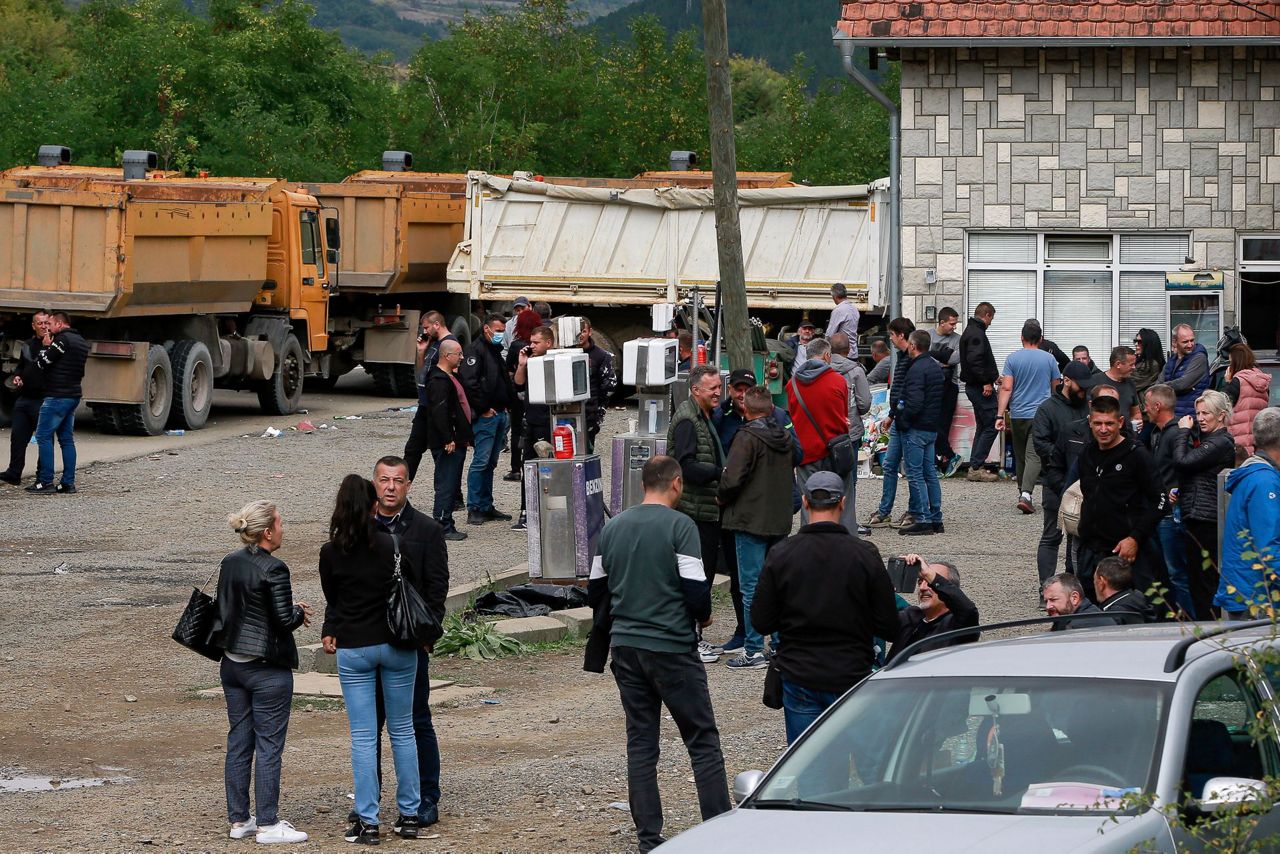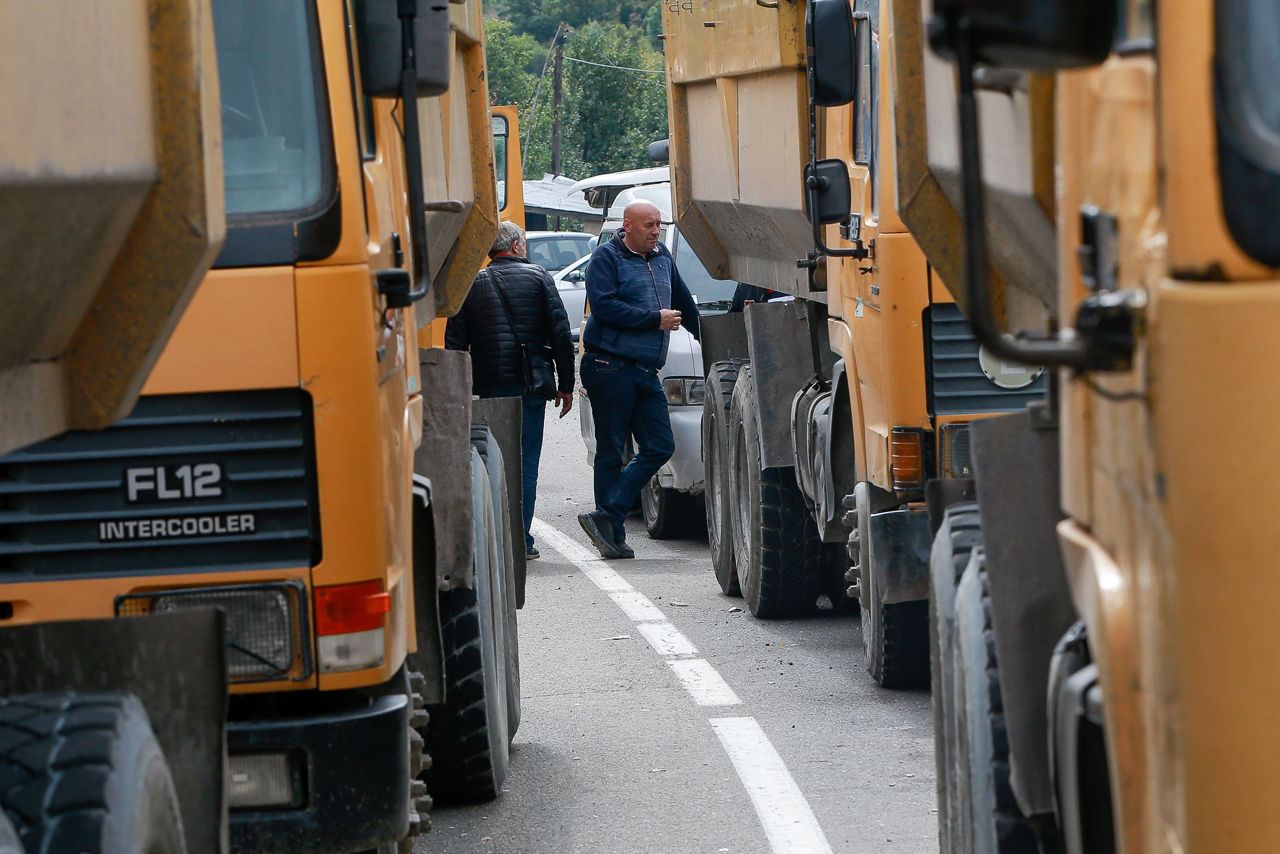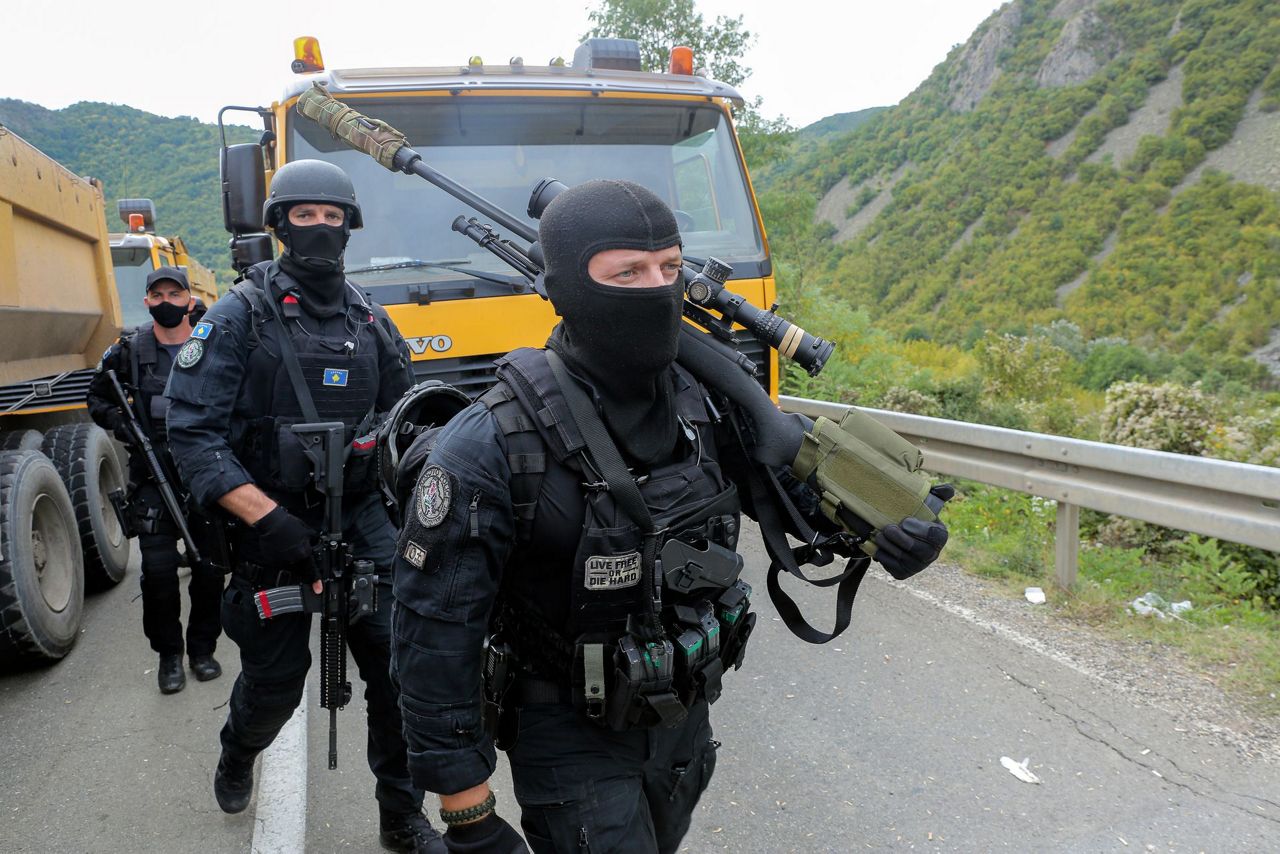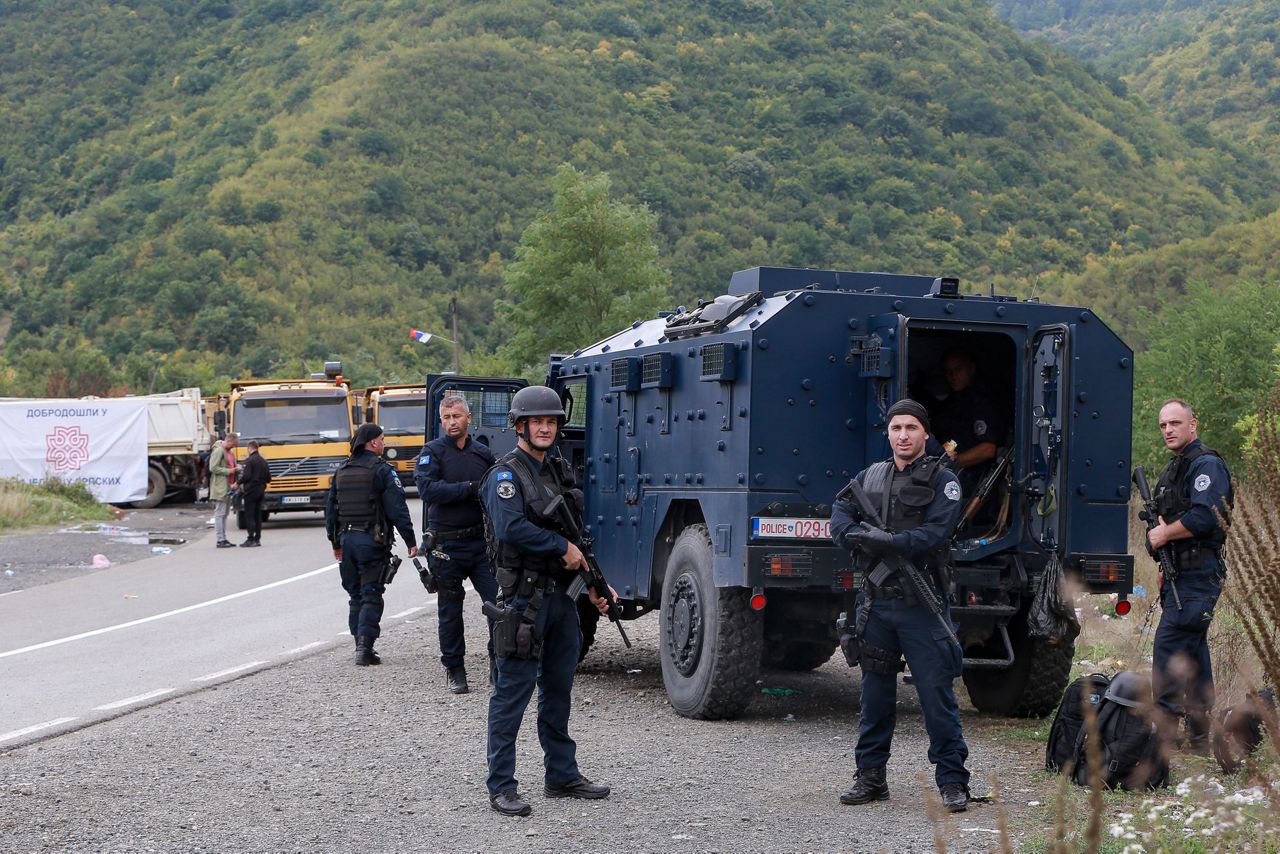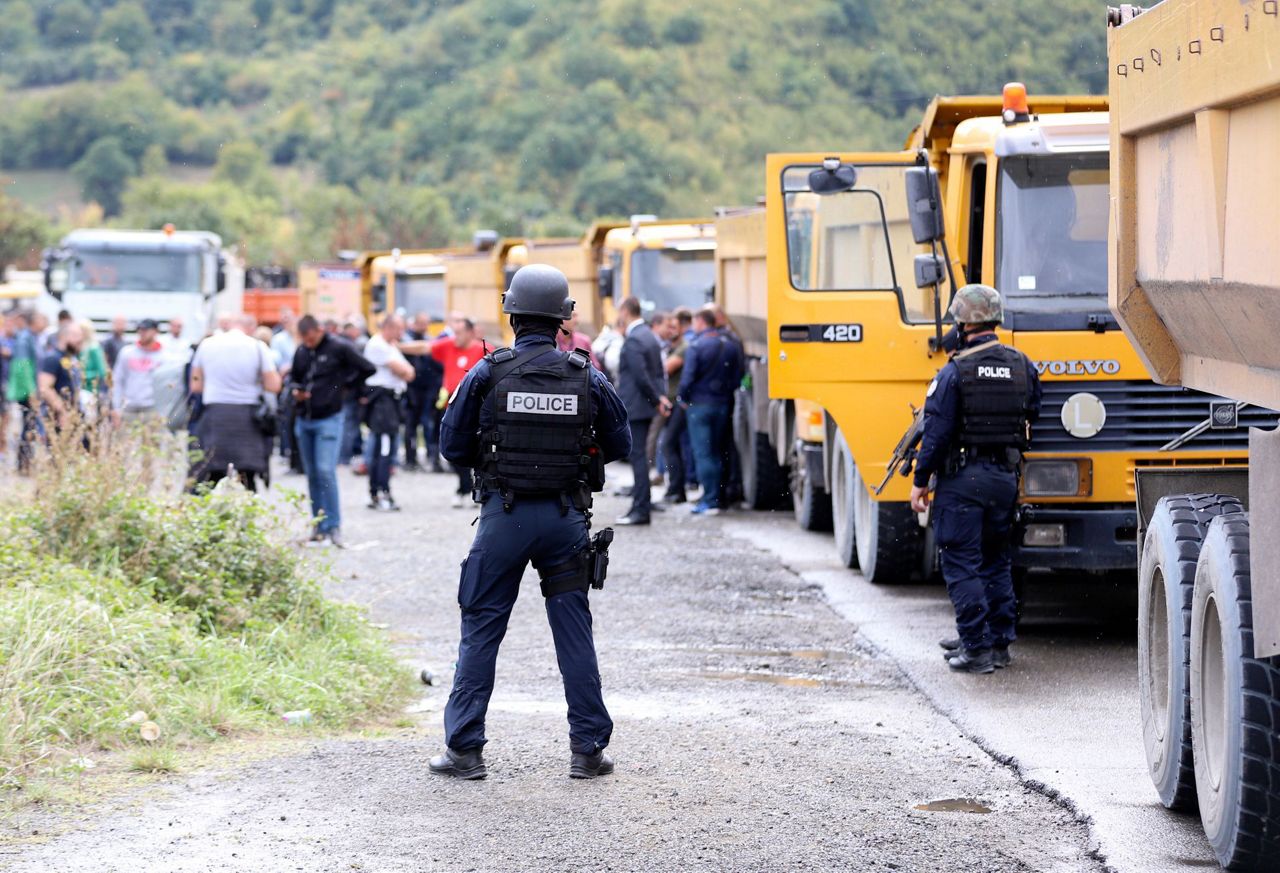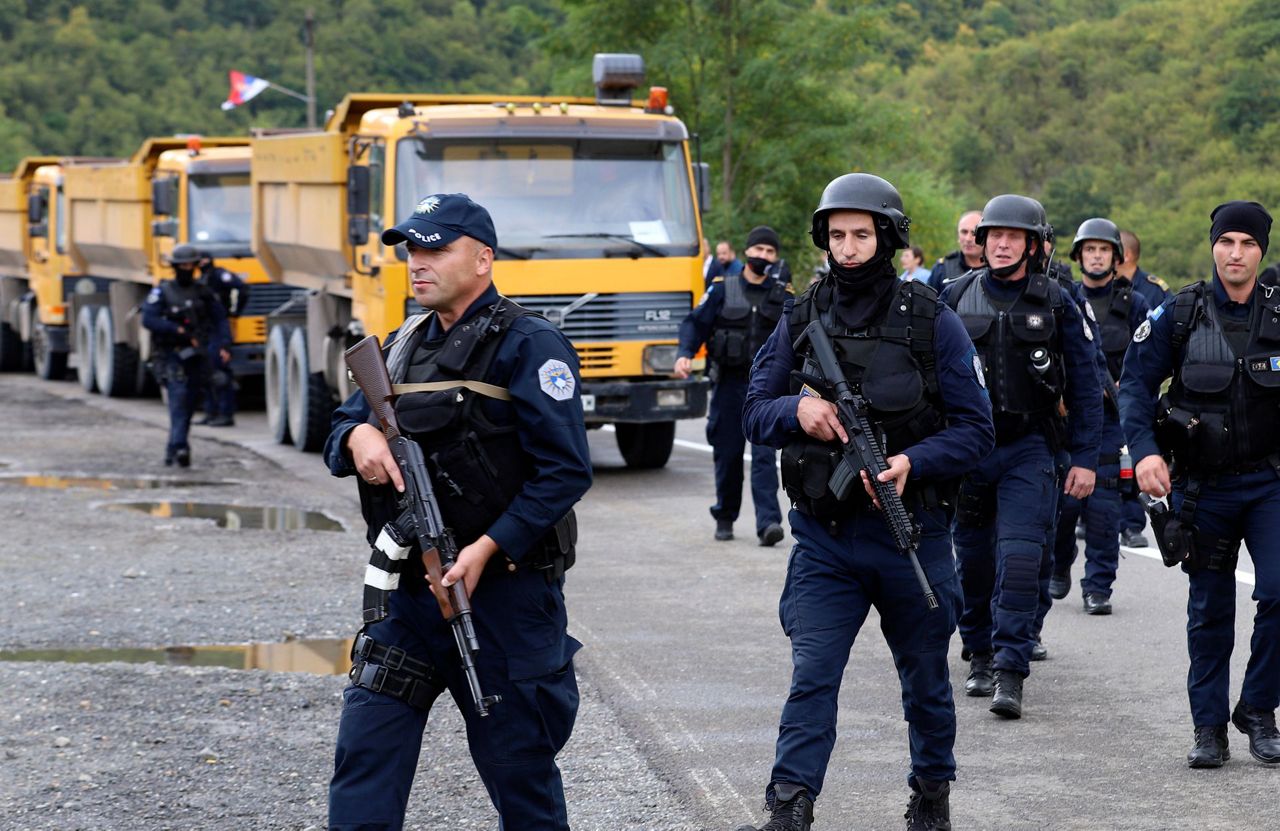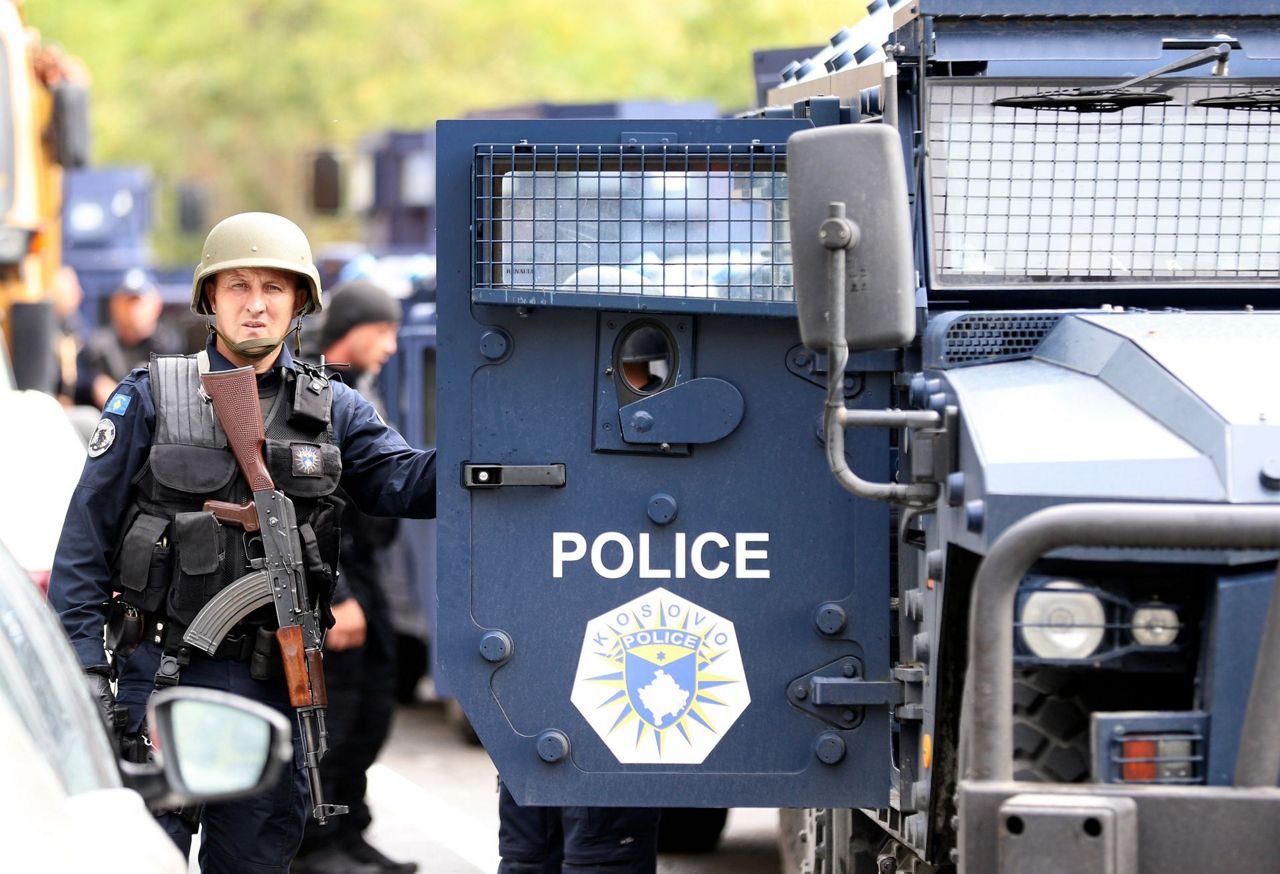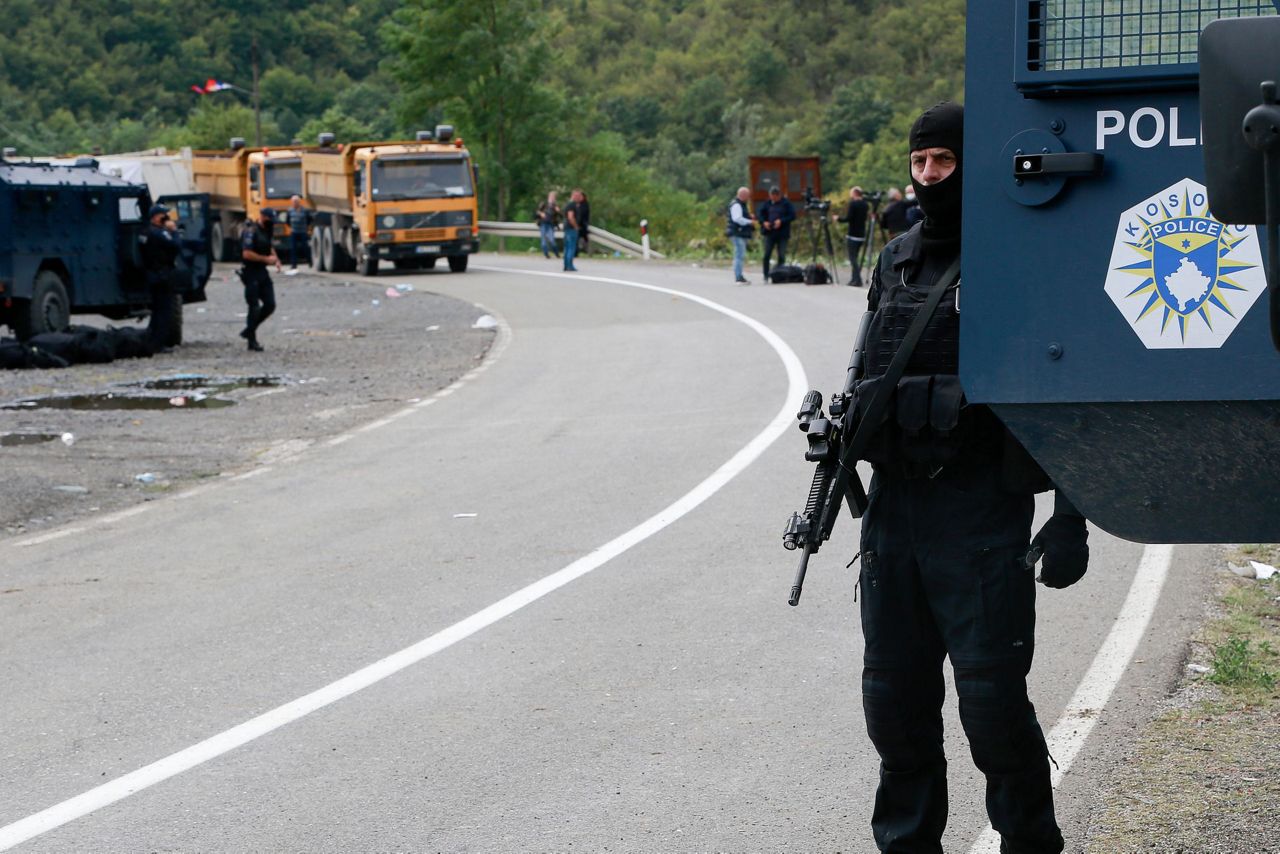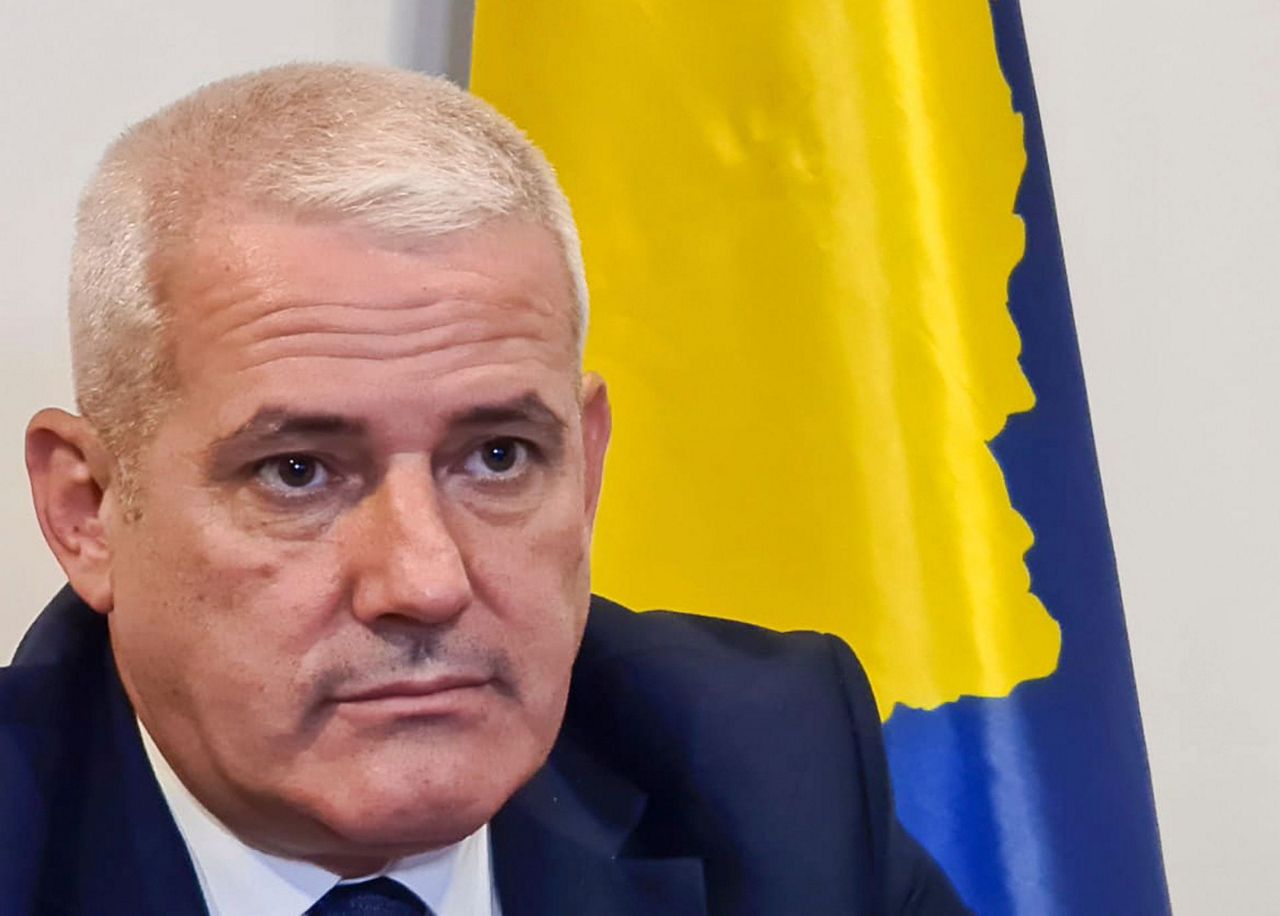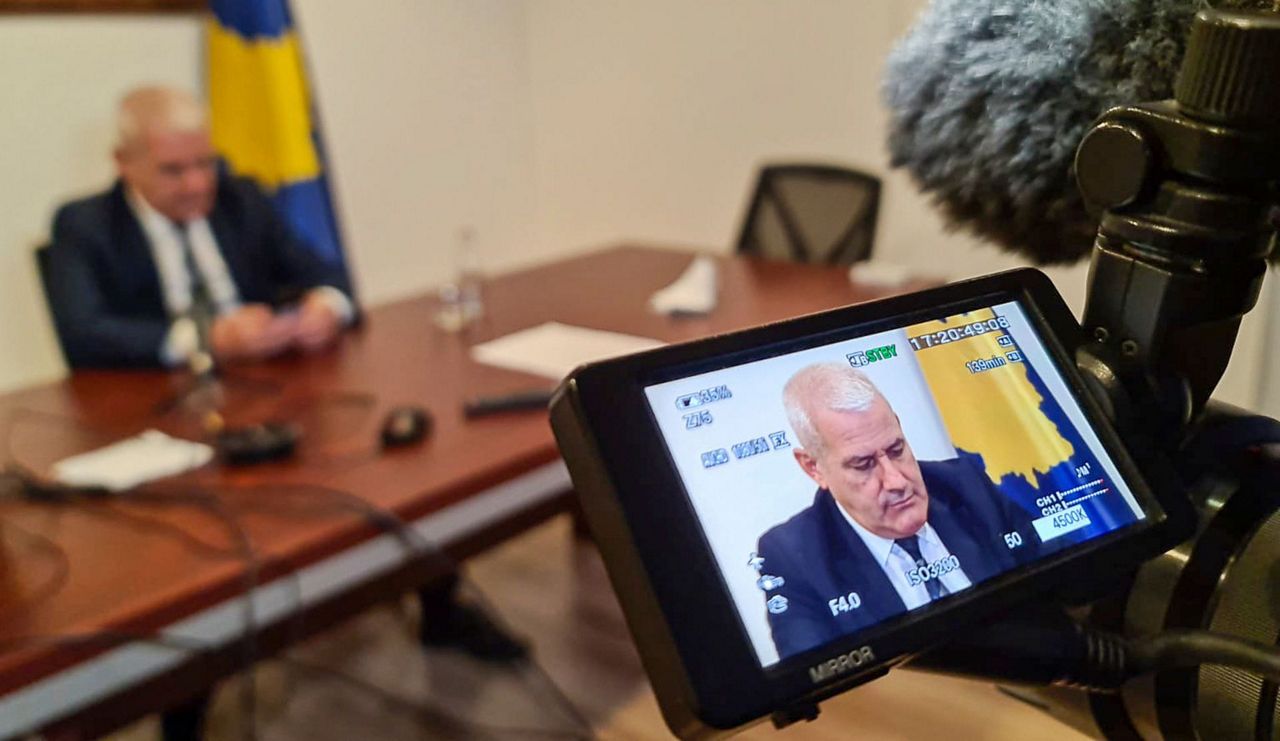PRISTINA, Kosovo (AP) — The Kosovo-Serbia border was blocked again Tuesday by ethnic Kosovo Serbs protesting a decision by Kosovo authorities to start removing Serbian license plates from cars entering the country. The traffic chaos raised fears that it may unleash much deeper tensions between the two Balkan neighbors.
Serbia doesn’t recognize its former province of Kosovo as a separate nation and considers their mutual border only as an “administrative” and temporary boundary.
Trucks have blocked the road to the Jarinje and Brnjak border crossing where small groups of Serbs spent the night in tents. An Associated Press photographer wasn't let onto the road by car but other people crossed the border on foot.
Tensions soared Monday when Kosovo special police with armored vehicles were sent to the border to impose a rule on temporarily replacing Serb license plates from cars while they drive in Kosovo. It's a minor annoyance for drivers with a big symbolic impact. Kosovo authorities say they are only copying a program by Serbian police, who have for years been taking off registration plates from Kosovo-registered cars entering Serbia. Drivers then need to pay 5 euros for a temporary license plate.
Kosovo authorities said a 2016 deal with Serbia reached in European Union-mediated talks had expired and now only proper Kosovo symbols are valid.
Interior Minister Xhelal Svecla told The Associated Press that Serb citizens in Kosovo “should not fear state institutions, police.” He said many Serbs in Kosovo were being "manipulated' by authorities in Serbia.
Hundreds of Kosovo Serbs drove to the border in their cars and trucks, blocking roads leading to the crossing points. Kosovo police on Monday fired tear gas at the protesters, but they remained.
Igor Simic, a Kosovo Serb official, said this is ”a democratic protest" by Kosovo's Serbs.
“They are just trying to save their human rights of free movement,” he said.
Kosovar Prime Minister Albin Kurti held a meeting with Western ambassadors from United States, Britain, France, Germany, Italy and the European Union, telling them that “yesterday’s decision was not a provocation or discrimination against anyone.”
“On this reciprocity of the temporary number plates for the cars, either both Kosovo and Serbia are right or they are wrong. Thus they will either keep number plates of both countries or take them away,” Kurti said.
The Kosovar prime minister talked with EU foreign policy chief Josep Borrell on Monday on the issue.
Thousands of people were killed and more than 1 million were left homeless after a 1998-1999 bloody crackdown by Serbian troops against Kosovo Albanian separatists. The war ended only after NATO intervened. Kosovo then declared independence in 2008. It has been recognized by the U.S. and other Western nations, but not by Serbia and its allies Russia and China.
Thousands of NATO-led peacekeepers, including U.S. troops, are still deployed in Kosovo, trying to stave off lingering ethnic tensions between majority Kosovo Albanians and Kosovo Serbs.
The EU and U.S. urged Kosovo and Serbia to “immediately, without any delay” exercise restraint and refrain from unilateral actions.
“”It’s important to reduce tensions, restore a peaceful atmosphere & allow for freedom of movement. We stand ready to facilitate talks on all open issues," tweeted Miroslav Lajcak, EU’s special envoy for Kosovo-Serbia dialogue.
Serbia’s populist president, Aleksandar Vucic, described Kosovo’s car license plates decision as a “criminal action” after a meeting Tuesday of the top Serbian state security body and insisted that Kosovo's special police withdraw from the Serb-dominated north.
“We consider as inappropriate any statements equaling the blame of Belgrade and Pristina,” Vucic said referring to the EU and U.S. urging both sides to ease the tensions. “The only solution is the withdrawal of all troops, then we can go to Brussels and discuss everything and possibly reach an agreement.”
___
Llazar Semini reported from Tirana, Albania, Jovana Gec from Belgrade, Serbia.
Copyright 2021 The Associated Press. All rights reserved. This material may not be published, broadcast, rewritten or redistributed without permission.



